'The pylons will destroy our organic farm'
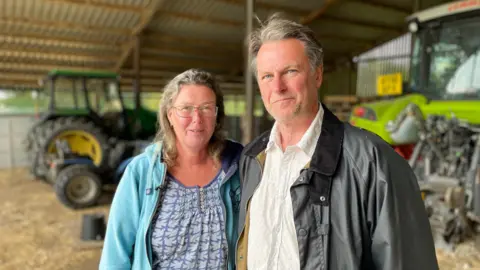 BBC
BBCThe owners of an organic farm in Lincolnshire have claimed a plan to run an electricity pylon route across their land will destroy their livelihood.
Jon and Judy Homer's 68-acre farm near Skegness has been selected by National Grid as a site for two 50m (164ft) pylons, associated access tracks and what the company describes as "environmental mitigation work".
The Homers said the impact on soil and the destruction of trees and wildlife would cause them to lose their certification to farm organically.
National Grid said it was possible to farm productively around pylons and it always aimed to improve nature and biodiversity.
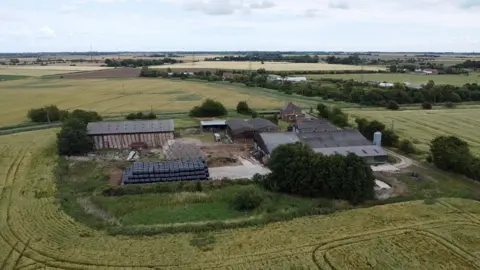
The Homers grow hay which they sell for use in organic milk production and graze a small herd of rare-breed sheep on the land.
The farm's soils, plants and wildlife are monitored and certified by Organic Farmers and Growers, which raised concerns with Mr Homer about National Grid's proposals, in a letter seen by the BBC.
Mr Homer said he was worried about soils and machinery being brought on to the farm.
"[National Grid] said they will reinstate the land after building and removing a construction access road but every shovelful of soil and every blade of grass would have to be organic for us to be certified," he said.
Mrs Homer added: "It takes years to convert a farm to organic, it's the entire way the farm is managed, that has an impact on our organic certification."
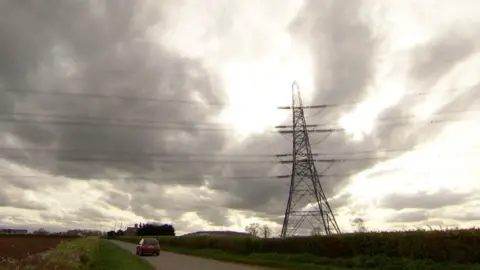
The pylon route is part of National Grid's "Great Grid Upgrade" which involves 87 miles (140km) of overland electricity cables running from Grimsby in North East Lincolnshire to Walpole in Norfolk.
The company said the route was necessary to connect new sources of electricity planned in the area including offshore wind, solar and sub-sea links from Scotland.
But the plan has faced strong opposition from Lincolnshire County Council and local MPs.
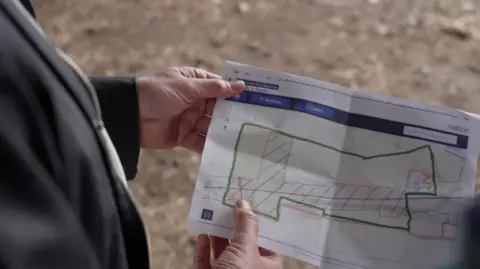
National Grid's diagrams show the replacement of a hay meadow with "mitigation planting" and the partial felling of a section of woodland.
Mr Homer claimed the proposals could take a significant amount of his farm out of production and there had been "no discussion or negotiation" about compensation because National Grid believed it would leave the farm in a viable state.
The farmer said he thought there may be a small "easement" payment for hosting two pylons on his land but described it as an "insignificant" amount.
"It's taken 20 years to build this farm up and now we are faced with losing it for the sake of a crazy plan," he said.
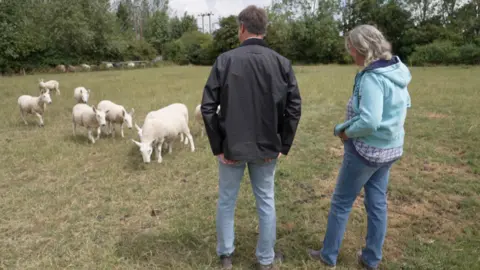
National Grid said its proposals would not harm the farm's environment and it built "biodiversity into all of our projects from the start - it's not an afterthought".
A statement added: "Most farming activities can continue around infrastructure, so the overall impact on agricultural productivity is minimal. During operation, only the land directly beneath each pylon is permanently affected.
"Our goal is to leave the environment in a better state than we found it by at least 10% and that includes leaving lasting benefits and strong protections for local wildlife and habitats."
Listen to highlights from Lincolnshire on BBC Sounds, watch the latest episode of Look North or tell us about a story you think we should be covering here.
Click here to download the BBC News app from the App Store for iPhone and iPad.
Click here to download the BBC News app from Google Play for Android devices.
